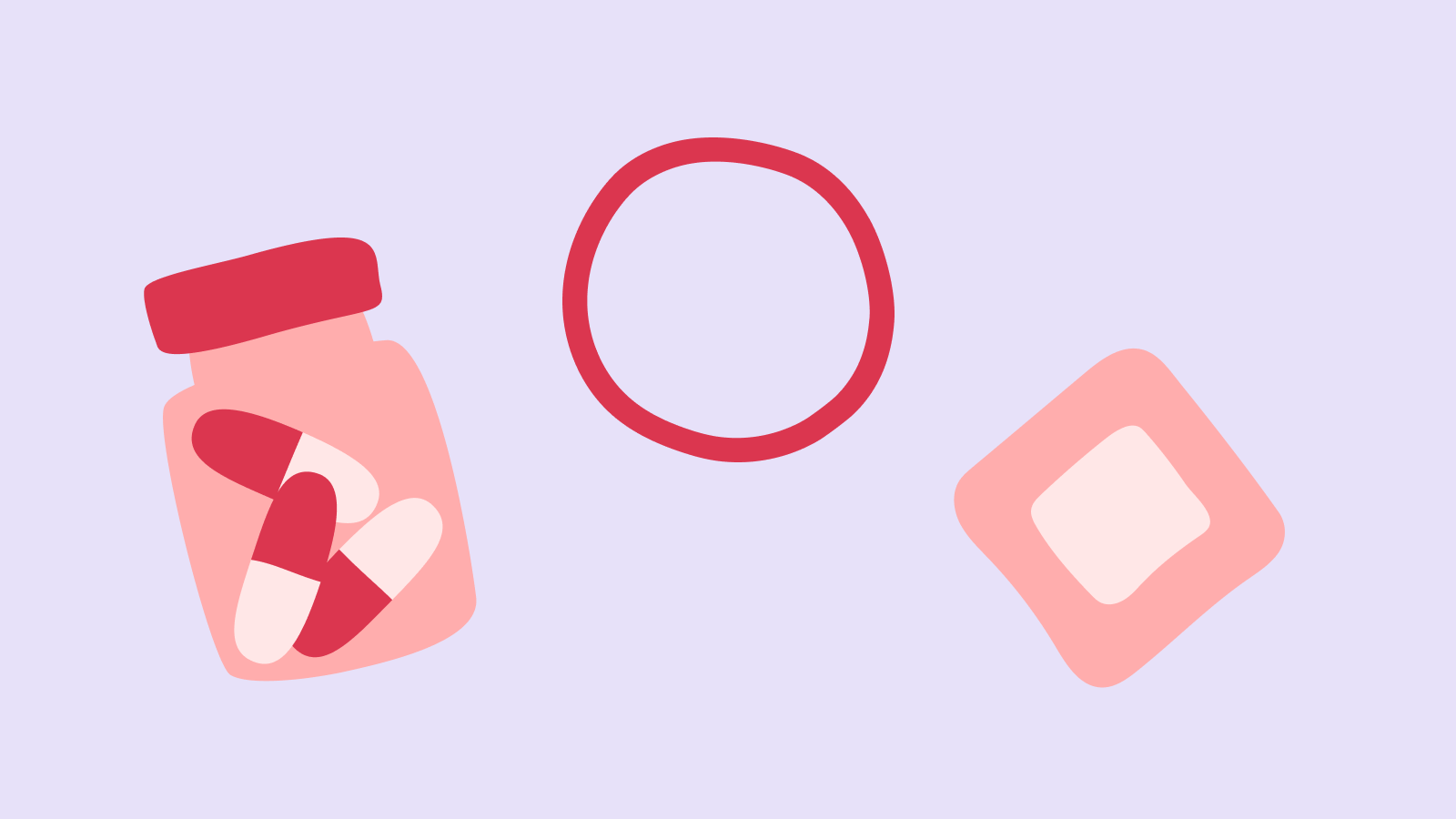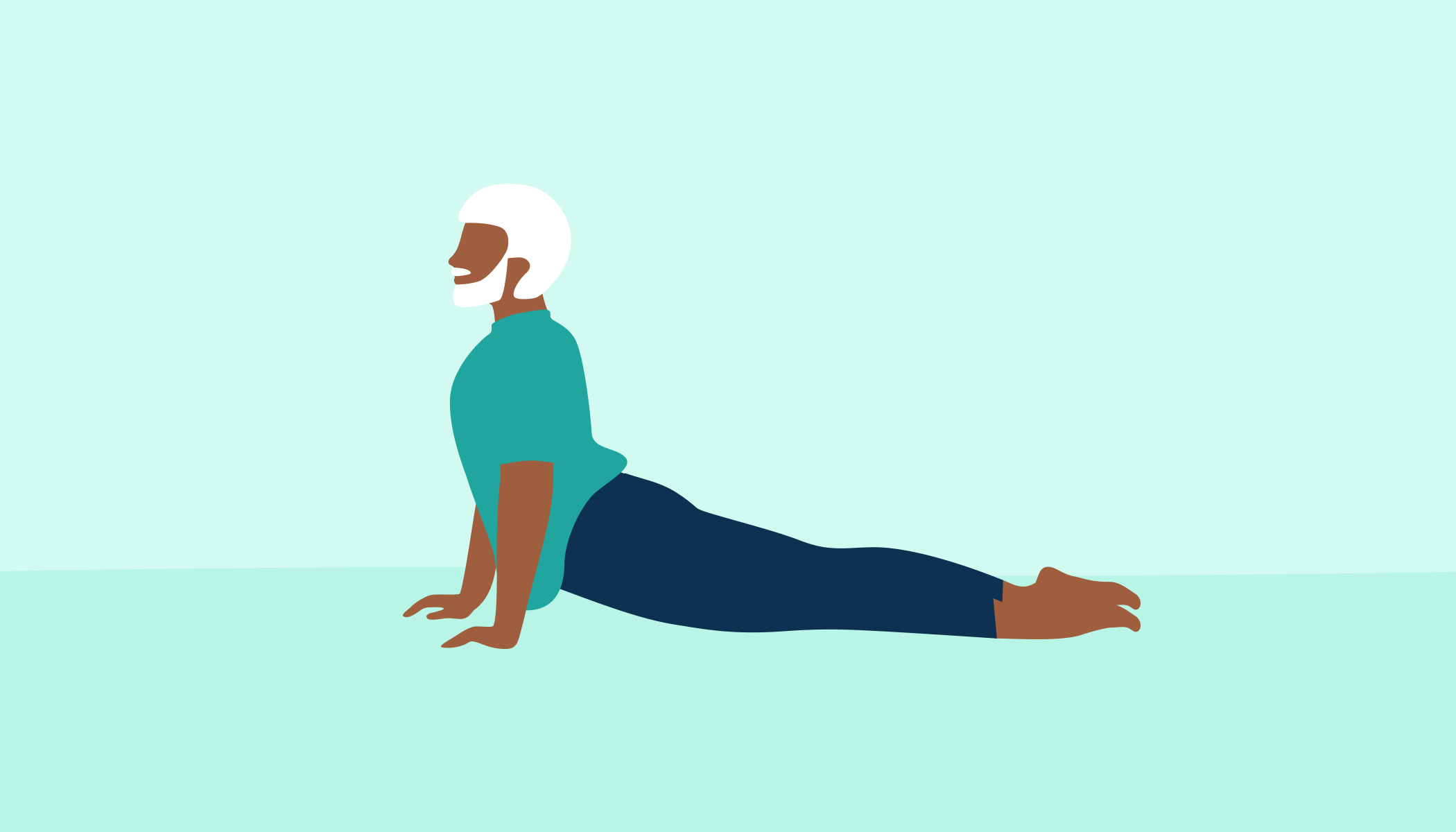Thanks to rising media coverage and more research, menopause is finally being talked about more. But hormone replacement therapy (HRT) continues to be misunderstood.
Used by more than 1 million women in the UK and 5 million across Europe, HRT helps to treat the symptoms of menopause, like vaginal dryness, hot flushes and sleep problems. But an increase in demand in the UK – with prescriptions doubling over the past 5 years in England – has led to supply issues for certain HRT products.
‘Menopause is a natural part of ageing that occurs when oestrogen and progesteron levels drop,’ says Dr Elisabeth Rosén, a Livi doctor who specialises in gynaecology and obstetrics. ‘Menopausal symptoms can impact a person’s mental and physical health, career and relationships. Taking HRT can improve symptoms of menopause as well as your quality of life.’
What is HRT?
HRT is a widely used treatment to help with menopausal symptoms. As its name suggests, HRT replaces the main female reproductive hormones oestrogen and progesterone, which start to decline as you approach menopause. The hormones in HRT mimic the ones produced by the ovaries.
Although HRT can reduce or relieve menopausal symptoms, a 2002 study led people and doctors to believe that HRT had more risks than benefits. Since then, the results have been reanalysed and the opposite was found to be true in many cases. But the damage done by the trial on public opinion persisted, depriving many women of effective treatment for their menopausal symptoms. Today, the benefits of HRT are gradually reaching more and more women.
‘Although there’s been huge scepticism towards HRT in the past, current research shows that there are long-term benefits of taking it for many women,’ says Dr Rosén.
What are the signs that I may need HRT?
‘You can usually start HRT as soon as you start experiencing symptoms of the perimenopause – the transitional stage before menopause,’ explains Dr Rosén. ‘If you suffer from hot flushes and sweating, HRT might be useful for you.’ You may have some or all of the following symptoms:
- Hot flushes
- Erratic periods
- Mood swings
- Sleeplessness
- Lower sex drive
- Vaginal dryness
- Urinary weakness
- Night sweats
A doctor may also recommend HRT if:
- You’re under 45 and have menopausal symptoms. Early menopause happens in around 5% of women.
- You experience menopausal symptoms before the age of 40. This is a condition known as premature ovarian insufficiency (POI), which happens in around 1% of women.
What are the different types of HRT?
There are 2 main types of HRT:
- Combined HRT – this is a combination of oestrogen and progesterone, which is suitable if you have not had a hysterectomy (an operation to remove the uterus).
- Oestrogen only – this type of HRT contains no progestogen, which protects the lining of the uterus. It’s used if you’ve had a hysterectomy or you use an intrauterine system (IUS).
There are several ways of taking HRT, including:
- Tablets, which are often the simplest way
- HRT patches that you stick on your skin
- Oestrogen gel that’s rubbed on your skin every day
- Vaginal oestrogen, which is available as a cream, ring or pessary, placed inside your vagina to relieve dryness
- Implants that are inserted under your skin
How do I get started on HRT?
If menopausal symptoms are affecting your life, it’s important you speak to a doctor who can help you choose the most suitable type of HRT treatment – dependent on your symptoms.
‘Usually, you can start HRT as soon as you have menopausal symptoms without the need for any tests first,’ says Dr Rosén. ‘But if you’re under the age of 45, a doctor might want to check your levels of the luteinising hormone (LH) or follicle stimulating hormone (FSH) if they suspect you have premature menopause or POI. And to investigate other conditions that could potentially be the cause behind the symptoms.’
‘HRT can start working as soon as you take it. Some women find they feel better quickly, while others can take longer to feel the full effects. The dose can be adjusted so that you get a treatment that helps your symptoms without causing too many side effects,’
Can you take HRT for the rest of your life?
‘Current guidelines suggest using the lowest dose of HRT for the shortest time needed to treat symptoms,’ explains Dr Rosén. ‘But it’s very much based on the individual, so, if the benefits outweigh the risks, it’s possible to extend taking it.’
What are the benefits of HRT?
Menopausal symptom relief
‘HRT is the most effective way to relieve symptoms of menopause,’ says Dr Rosén. ‘Hot flushes and sweating are usually considered the key indications for needing treatment, but it may also improve sleeping problems. This is probably because by reducing the nightly hot flushes, you’ll likely have better quality sleep.’
Bone health
‘HRT can also benefit bone health,’ says Dr Rosén. ‘It can help prevent osteoporosis, which is more common after menopause because reduced oestrogen can result in decreased bone mass.’
Heart health
‘There’s also evidence to suggest that HRT can protect you from heart disease,’ says Dr Rosén.
Dementia prevention
‘There’s also some evidence that it may protect you from getting dementia later in life,’ says Dr Rosén.
Are there any risks of taking HRT?
When it comes to taking HRT, it’s also important to be aware of the risks, which vary from one person to another. ‘For many women, the benefits of HRT are believed to outweigh the risks,’ says Dr Rosén.
Breast cancer
If you’re taking oestrogen-only HRT, there’s little or no change in your risk of breast cancer. With combined HRT, there may be a small increase in the risk of breast cancer.
One new study found that there was no increased risk of taking HRT for a year or less. But the risks of breast cancer increased with the duration of taking HRT – which was higher if taken for longer than 5 years.
Blood clots
Research shows that HRT tablets are linked with a higher risk of developing a blood clot. There’s no increased risk of developing a blood clot from HRT gels or patches.
If you’re concerned about the risks, speak to a doctor. HRT may not be suitable for you if:
- You have a history of breast, ovarian or womb cancer
- You have high blood pressure, which is untreated
- You have a history of blood clots
- You have liver disease
- You’re pregnant
What are the possible HRT side effects?
When you start taking HRT, you may experience side effects from oestrogen and progestogen, including:
- Breast tenderness or swelling
- Bloating
- Fluid retention
- Headaches
- Vaginal bleeding
- Mood changes
- Indigestion
- Feeling sick
- Leg cramps
‘The HRT side effects you experience will usually improve after a couple of weeks,’ says Dr Rosén. If they don’t improve after 3 months, speak to a doctor who may suggest an alternative treatment plan.
How do I go about stopping HRT?
If you’re thinking of stopping HRT, you can either gradually reduce your dose or stop immediately. If you’re wondering the best way to go about this, speak to a doctor.
‘Many women stop taking HRT once their symptoms pass. After you stop taking it, your body will have to adjust to your new lower levels of oestrogen,’ says Dr Rosén.
What are the alternatives to HRT?
If you choose not to take HRT or are unable to, there are some alternatives you can try.
1. Lifestyle changes
Following a healthy lifestyle can help to improve symptoms. These include:
- Exercising at least 150 minutes of moderate intensity or 75 minutes of vigorous intensity per week
- 2-3 sessions of strength training each week
- Eating a healthy diet full of foods rich in calcium and vitamin D
- Cutting down on caffeine and alcohol
- Giving up smoking
2. Talking therapy
If you’re struggling to cope with the psychological symptoms of menopause, cognitive behavioural therapy (CBT) is a type of talking therapy that can help you develop practical ways of managing problems. It also provides you with coping strategies for anxiety, low mood and stress related to menopause.
There’s also evidence that CBT can help you manage night sweats, hot flushes, sleep problems and insomnia.
3. Bioidentical HRT (or body identical HRT)
If you’re looking into options for treating your menopausal symptoms, you may have come across bioidentical or ‘natural’ hormones. Bioidentical HRT resembles the ones our body naturally produces, particularly progesterone. They are made from plant-based sources, and many women opt for them because these hormones are promoted as being a ‘safer’ or a more ‘natural’ alternative to standard HRT medicines.
When should I speak to a doctor about HRT or menopausal symptoms?
If you’re experiencing any menopause-related symptoms that are affecting your daily life, it’s a good idea to book an appointment with a doctor.
It’s also best to speak to a doctor if:
- You have any bleeding at all after menopause
- You’re experiencing low mood or depressive symptoms
- You’re having difficulty sleeping
The bottom line
‘Although there’s been huge scepticism towards HRT in the past, current research shows that there are long-term benefits of taking it for many women,’ says Dr Rosén.
This article has been medically approved by Dr Elisabeth Rosén, a Livi doctor who specialises in gynaecology and obstetrics.


